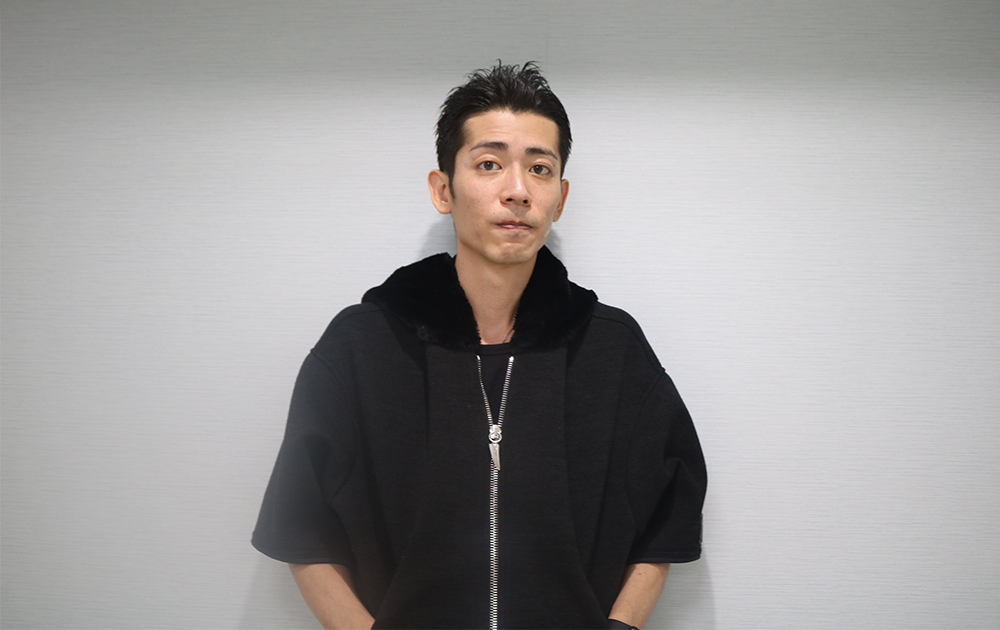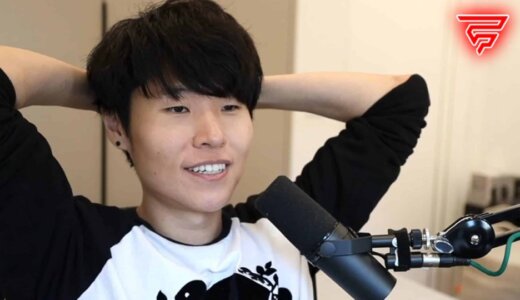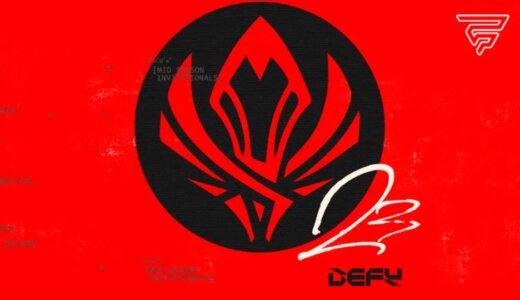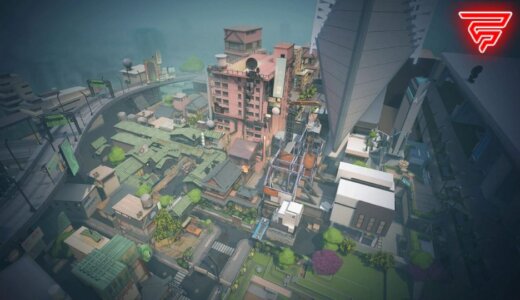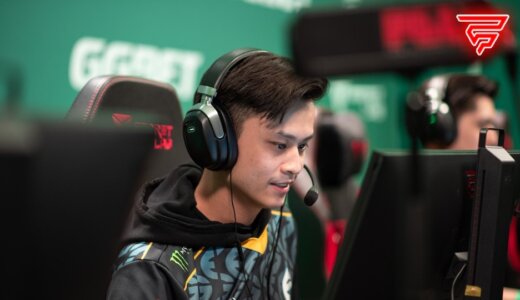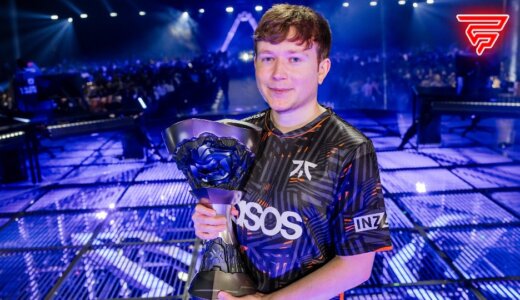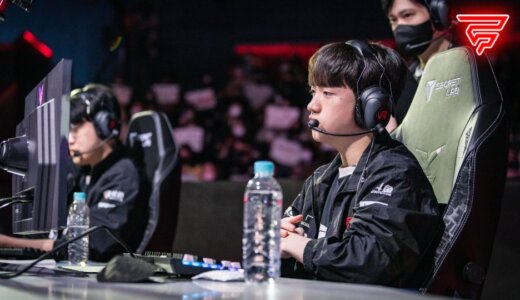It is no question that Japan has seen the biggest shift in its esports scene in recent years. From being known as a console game-centric country whose esports strength gravitated around fighting games, it has gained ground in cultivating a feasible PC gaming scene.
In that regard, the brunt of Japan’s newfound popularity to PC gaming is owed to ZETA DIVISION’s third place finish in the 2022 Valorant Champions Tour Stage 1 Masters: Reykjavik competition. It was there where Japanese fans realized they too can make considerable noise on the international stage. In grasping Japan’s incredible progression with its esports, it’s only appropriate to reflect on the long road it has taken to reach the present, and no one is more fitting to undertake these lens of contemplation than Tsuneaki “Buddha” Takeda.
Buddha started his esports career in the early 2000s as a CEO of 4dimensioN.PSYMIN, which was Japan’s first-ever professional gaming team, to compete in the local Counter-Strike 1.6 scene. Despite receiving little to no compensation for competing in the many tournaments they participated in and eventually disbanding, 4dN’s contribution would go on to serve as Japan’s first steps in esports.
Though Buddha wasn’t present to oversee esports’ subsequent expansion as a player, he was certainly there when it came to working behind the scenes. With his business expertise, Buddha went on to work with notable organizations such as Team MVP, Vision Strikers, and DRX. Since joining DRX, Buddha has continued advocating for the Japanese esports scene with the same gusto that he exhibited during his days with 4dN, building a devout fanbase for his current team while also organizing events that continues to expand its appeal in the Far East.
In the first part of Fragster’s interview with Buddha, he talks about how he started his esports career in Japan, the development of the esports scene in the country in recent years, what kind of state he thinks it will be in the future, and more.
Esports Origins
Pedro Romero, Fragster: Thanks for taking the time to do this interview, Buddha. I want to start from the very beginning and cover the things that made you what you are today. Where exactly did you start your career in esports?
Tsuneaki “Buddha” Takeda: It’s kind of weird because I’m 43 years old but I’ve lived overseas for 20 years. I was living in the United States when esports were actually made so I was a player until 2003. Business-wise, I started doing esports in 2005. I made the first professional esports gaming team in Japan called 4dimensioN, which competed in Counter-Strike 1.6. I don’t think we were known in the world, but in Asia, we were pretty good. I’m with DRX right now but all the guys who are running there used to be my rivals so it was natural for us to be together and make a better organization not just for Korea and Japan but internationally too.
Initially, were you primarily focused on FPS games? Were you primarily focused on games such as Counter-Strike as a player?
Actually, I used to hate FPS games until I started CS 1.6. Other FPS games didn’t interest me very much so I used to play a lot of Starcraft and World of Warcraft back then. But when I got into CS, it was all over. That’s where the whole story started. I started as a player, but I started off at an old age so I started making a scene in Japan and the first thing I did was to make a professional team with Razer. Back then esports wasn’t big, but for the ones who knew about it, that was huge news.

Buddha with the 4dimensioN.psymin team announcing their sponsorship with Razer during Tokyo Game Show 2005 (Credit: 4gamer.net)
How would you describe the state of the esports scene in Japan around that time?
Maybe it was the smallest in the world. [laughs] They were almost non-existent because Japan is a very unique country since we have Sony and Nintendo. We were used to growing up with console games and not PC-based games. That’s why we’re late in coming into titles and esports. Right now it’s a different story altogether.
Because Japan started off with console games, did you feel as though the country started off very behind compared to the other regions?
Very behind. Very behind. In Japan, we usually say 2018 marked the birth of esports. Normal people would never have heard about esports until 2018. Gamers were the only people who were interested in esports. It was not a common word until 2018.
Rewinding to the beginning, did you have any role models in mind while beginning to pursue an esports career?
SK Gaming, NiP, and Fnatic were the kings of CS so we wanted to play against them, but it was hard for us to participate in tournaments like CPL (Cyberathlete Professional League) and WCG (World Cyber Games). We had few chances to go overseas which weren’t enough to compete properly. I took my team to a lot of boot camps in Korea, which is where I made my connections and all the friendships back then, but we never got to shine in the international scene. That might have delayed the esports scene in Japan because there was never a complete competitive scene. There has always been a gaming scene, but competitive gaming was never a thing for Japan until these last five years or so.
By how you describe it, it was literally just you guys trying to build something within the country.
We did it from scratch. We started from nothing because when I started that first team, I think only 1000 people within the country knew about our esports. That’s how small it was back then.
Did you feel pressure in trying to manufacture an esports scene in the country?
Of course. I’ve told you the circumstances back then but someone had to do it, right? It wasn’t a hard time for me. It was one of the best times I’ve ever had in making a professional Japanese team and having all the fans cheer for us. We always had fun and I have no regrets whatsoever. We became the first one and the rest followed after us so I think we did the right thing in my opinion.
(4dimensioN during one of their boot camps held in Korea)
Was it always your intention to become a part of the first professional gaming team?
I have a lot of love for esports. After I getting to know the scene, I wanted to see more Japanese players participating in the game I love. It’s very natural but no one knew how to organize a team because there’s no other teams. I was participating in CAL (Cyberathlete Amateur League) and I knew there was a potential in making tournaments that would then enhance the scene. That’s why I made a lot of events within Japan, but before that, it was almost non-existent.
When it comes to building an esports team, besides building a competitive team, there’s also work in creating a brand to garner fans and have them stay long after an original lineup disbands. How difficult was it for you to build a self-sustainable brand in the country in comparison to other esports teams throughout Asia?
Very difficult because the scene was very weak. I’ll give you one funny story. Whenever there’s an Asian CS tournament, Japan was never invited. The pro teams knew how good we were but the tournament people didn’t so I got pissed off. One event, I just took my team, put them in a flight, and went there in person. I told the tournament organizer, ‘We’re good. Let us participate.’ Of course, we couldn’t participate but we showed them how good we were. For the next tournament, we got to participate. I even got to host the Japanese qualifier. The tournament was called WEG (World e-sports Masters) and it was run by Can Yang, CEO of DRX Valorant.
The rise of esports in Japan
Can you pinpoint the exact moment in time in which the esports scene went from just being an underground environment to one that is gaining traction?
I think COVID had a lot to do with it because the viewership on Twitch in Japan is rapidly growing even now. That period of time helped the gaming scene, and esports especially, gain fans because they needed to watch something to have that entertainment. We never had that kind of ecosystem for any tournament back then. It was just a ‘participate and prize’ kind of thing. There was never guaranteed money from the league, the IP, or anything like that. In that regard, it is still kind of hard to run a team in Japan.

ZETA DIVISION in the 2022 VCT Stage 1 Masters: Reykjavik tournament (Credit: Colin Young-Wolff/Riot Games)
Another major turning point when it comes to Japanese esports is ZETA DIVISION’s third place finish in Masters: Reykjavik. How much of an effect did that showing play in to the subsequent popularity of Valorant in the country?
Huge. The whole of Japan was behind ZETA. They were on TV every day. They were covered by a couple of famous magazines in Japan. They’re stars right now so I’m happy for them because they’re bringing a lot more attention to esports. I hate to be the one that was eliminated by them but it was great to see a Japanese team finish in Top 3 which never happened before in the FPS scene. No one can deny that. That record stays forever so what ZETA did is history and I hope the history goes on and we keep the rivalry forever.
What about Valorant made it possible for the country to become so enamored with playing it compared to other titles?
I told you before that the esports scene is late in Japan, right? That was the problem. Every title is like that in that sense. If someone was to start a CS title, they’re already 10 years behind. But after 2018, people starting having PCs and they now know what the competitive scene looks like. Then Valorant came out and all the fans and pros became interested in the game. All the professional players from PUBG, CS, Overwatch, Special Force, and even League of Legends came to Valorant. It was like a manga where all the superstars gathered in one place which caused a super drive in audience size. Valorant is the only title at the moment where we can start at the same start line.
Comparing the current crop of players and the people you’ve played with, what would you say has been the biggest difference between those two groups?
Nowadays, we have Twitter or whatever. Players are more idols in Japan so it’s very hard to get autographs, pictures, or whatever. Before, we probably signed five photographs in total. That’s a huge difference because being recognized is important to keep your motivation and having more fans definitely boosts your confidence and whatnot. It’s a totally different environment right now. It’s like playing in a soccer team with a 5k audience.
— DRX🐉Buddha (@BuddhaJPN) June 26, 2022
It makes sense because in the 2022 VCT Stage 2 Regional Finals of Japan, there was an arena filled with fans watching ZETA face Northeption. I think it was the first time such a scene played out in that fashion. When you saw that, what did you think of it?
A lot of emotions actually. I was overwhelmed since it took this much time for the scene to get here. As a Japanese person, I was so proud the audience was actually there to cheer on both teams. It was the most beautiful thing that the scene has ever seen. When I entered, it was as fully packed as you saw. I’m very happy that people are enjoying that competitive scene because they weren’t used to it. NA and EU are used to it by watching CS, LoL, and whatnot. Maybe that has some effect to our audience because it’s something new and interesting in Valorant. That’s why ZETA is doing well in driving a lot of that growth.
When you were announced as the newest member of Vision Strikers in a tweet more than a year ago, you were called the pioneer of Japanese esports. Do you think of yourself as that?
Yes I do because I did make the first professional team and I’m still here to this day. That must mean something, right? History has to start somewhere so I’m proud that I made that team in 2005. Otherwise, everything would have started later. There are many pioneers besides myself. I didn’t make it myself but I believe I am one of the pioneers for the scene. That’s why my opinion matters. That’s why you’re interviewing me. I’ve done a lot and made a lot of teams. That’s why the credit started there. People judge me and I don’t judge myself.
Announcing the pioneer of esports in Japan to Vision Strikers!
Forefront of esports in Japan ✓
Massive Vision Strikers fan ✓
Perennial aim for rank 1 ✓Welcome to the VS show @BuddhaJPN #FollowYourVision #VSWIN #VSVICTORY pic.twitter.com/6SiJXEVNsk
— DRX VS (@DRX_VS) February 1, 2021
With this year coming to a close, many people might say that this has been one of the most significant in Japanese esports. How do you see the esports scene in Japan five years down the line? Where do you see it going from now to the future?
With the current speed esports is experiencing in Japan, it’s too fast. It’s the fastest speed it has ever seen, so I don’t know. I’m just excited for the next five years to come. We’ve never had an international tournament in Japan so I expect a lot more tournaments to be held here. It’s always the Japanese going overseas but I want the other way to happen. I don’t know though. Because the Japanese scene is a little bit different compared to the others, it’s kind of hard to predict. It might be at the peak already but I don’t know. Most likely, however, it will keep growing like crazy.

The 2022 VCT Japan Challengers 2 Playoffs (Credit: Hisashi “Yossy” Yoshimura)
Given that some Riot executives talked about Valorant’s immense popularity in Japan, what do you think about the possibility of there being an international event in the country?
I’d say very high. It’ll be a good promotion for Riot and for Japan too. We need it. I’d love to see it in Japan. We’re ready for it. The fans are ready for it so Riot, we’re waiting. As DRX, we just participated in an event called RAGE. Twenty four thousand tickets was sold out in three minutes. That must mean something, right? Going back to your question, the potential of Japan esports is very bright. I can’t express this point much more.
Then let me say this: is there also cause of concern about the scene growing too fast that teams, fans, or yourself may not being able to keep up its rate?
Yes and no because the information about the international events hasn’t been out yet. People are just only speculating so they don’t know what to expect. For ZETA and DetonatioN Gaming, they’re going to be in the new VCT Pacific league but is it going to be a weekly or monthly affair? People are anxious to see what the format is going to be and we’ll see how the fans react, but the league will be super fun. I think the Japanese audience will keep growing and they’ll enjoy the esports scene even more. There’s no stopping Japan.
Header: esports-press.com
